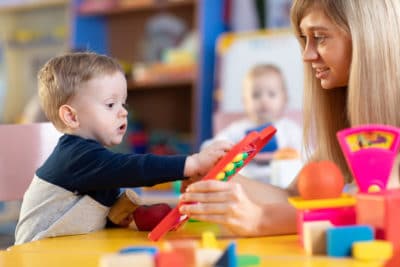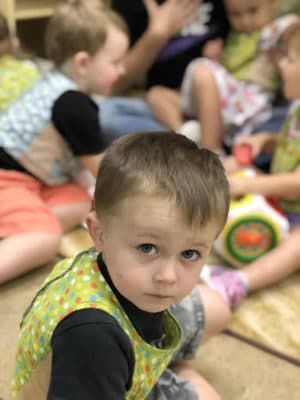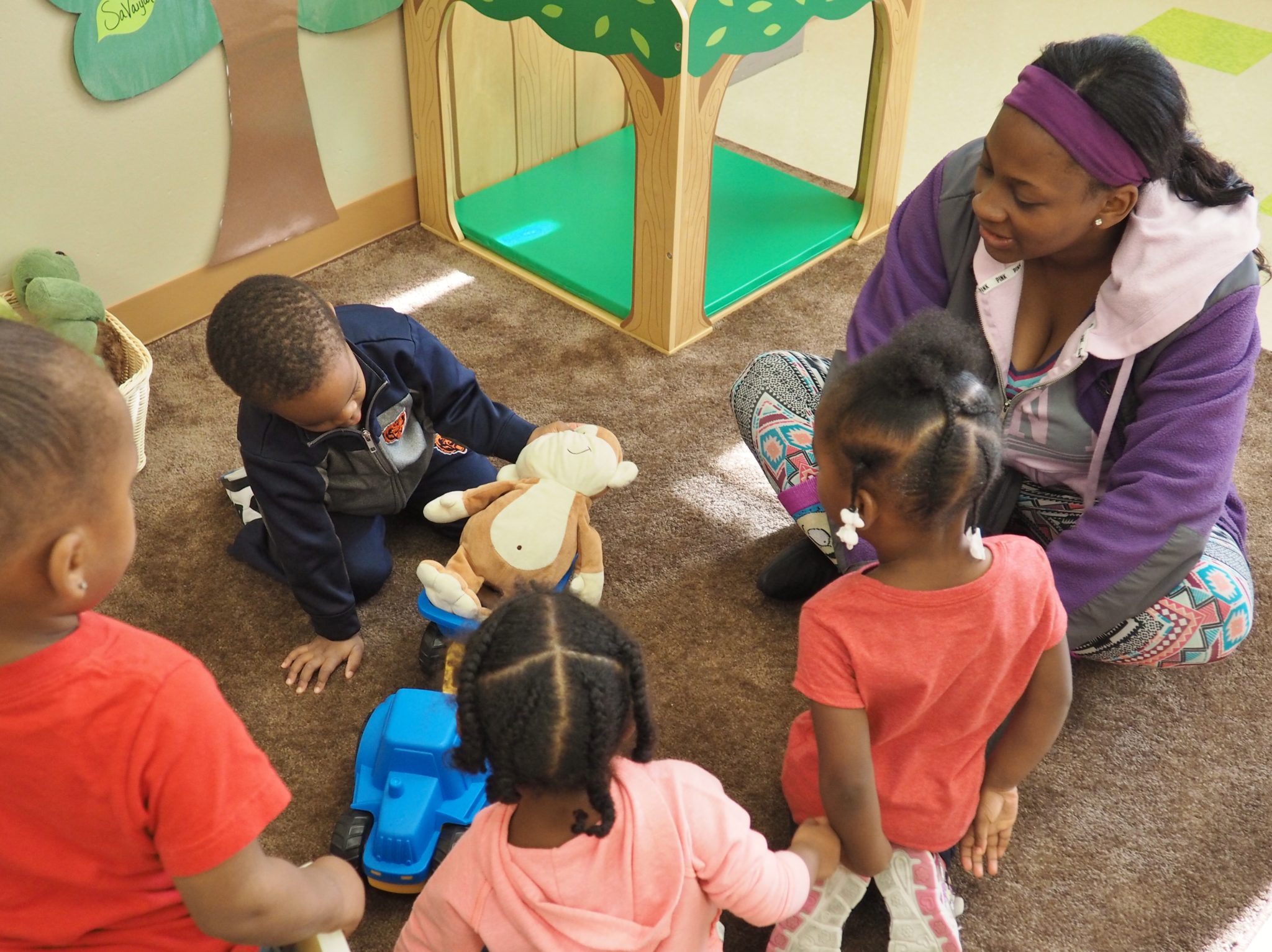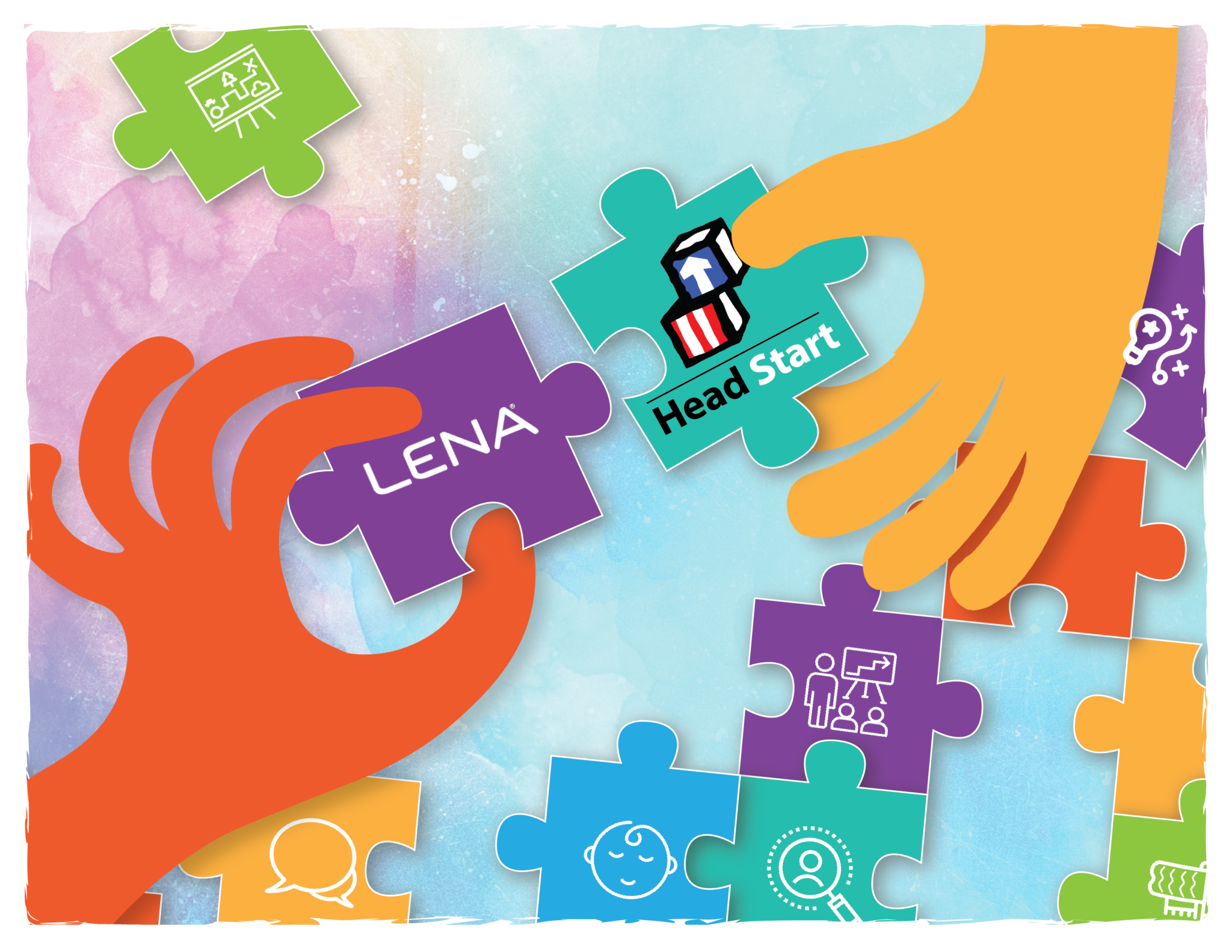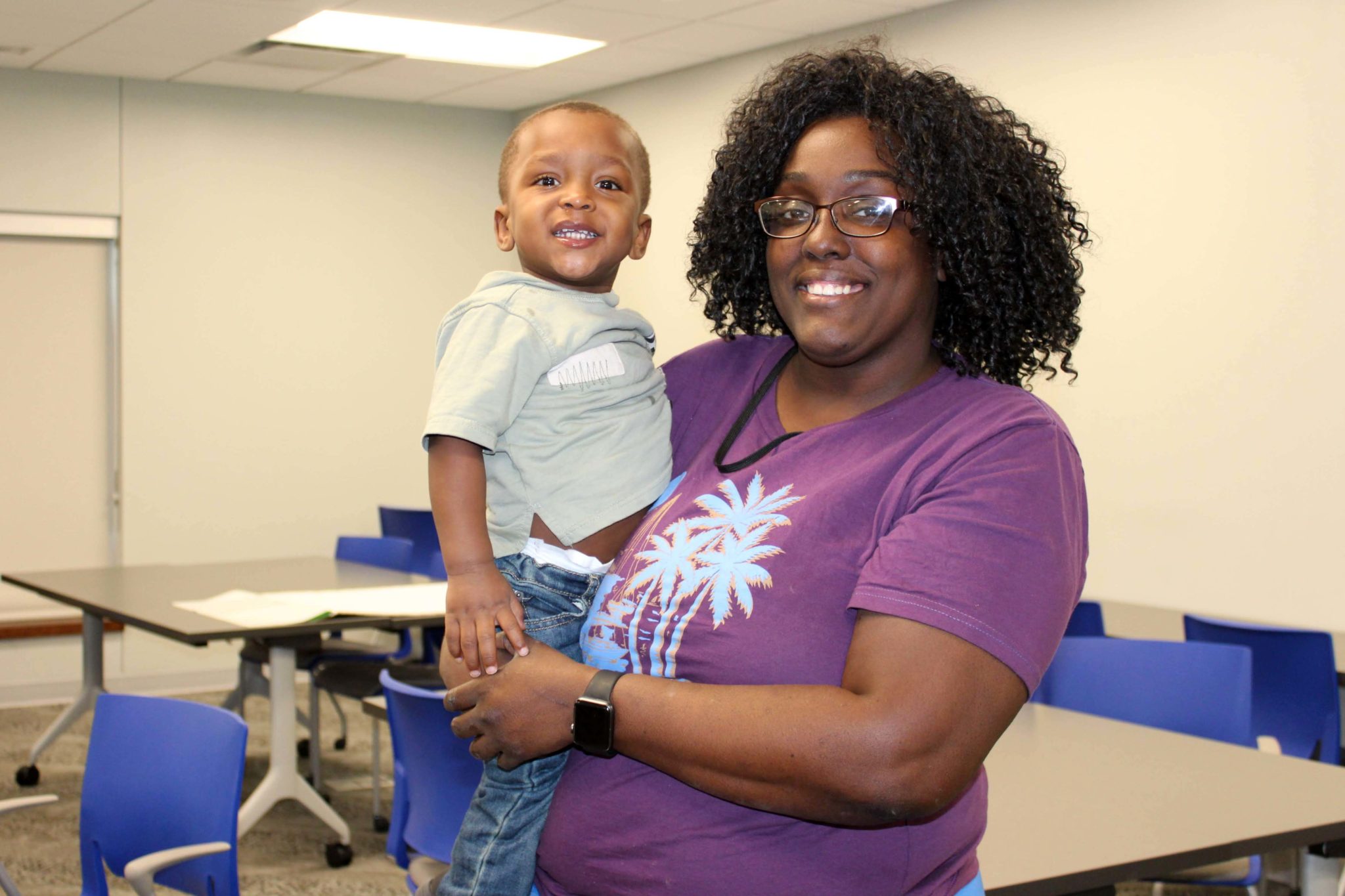Sequatchie Valley Head Start, which serves a five-county region in southern Tennessee, uses LENA Grow to support professional development of teachers serving children across 80 miles of rural countryside.
“We use LENA Grow as a motivational coaching tool for teachers, to help them gauge where they’re at, set goals, and improve,” Kelly Barrett, who coaches the teachers, explained.
LENA Grow is an innovative, research-based professional development program designed to help early childhood teachers improve classroom quality by boosting interactions. The program couples LENA’s “talk pedometer” technology with weekly coaching sessions.
“This program was way more hands-on than other professional development programs we’ve done,” teacher Ashley Ramos said. “Usually PD is just someone talking to us and telling us things that they know. But with LENA Grow, the teachers got to be more a part of it; we got to be really involved.”
During the program, teachers complete one “LENA Day” each week to get data on how much talk and interaction children in their classroom are experiencing. The data is turned into simple reports that teachers review with a coach, setting goals for themselves and earning stars when they achieve their goals.
“LENA Grow gives us a way to celebrate teachers’ progress that’s not as stressful as a CLASS assessment,” Barrett said. “There’s so much pressure tied to CLASS scores, because if you get a low score it could cause you to recompete for your Head Start grant. But with LENA, there’s no judgment — just ‘yay!’”
“This program was way more hands-on than other professional development programs we’ve done. Usually PD is just someone talking to us and telling us things that they know. But with LENA Grow, the teachers got to be more a part of it; we got to be really involved.”
-Ashley Ramos
Coaching in small groups
Sequatchie Valley uses LENA Grow to meet Early Head Start’s requirement that sites must implement a research-based coaching strategy for staff that’s aligned with program performance goals. The training and professional development standard, which is number 1302.92, is one of the Head Start Program Performance Standards currently in effect for sites.
To implement the coaching program over such a wide geographic area, Barrett trained a staff member at each site on how to offload data from LENA devices at the end of each LENA Day. Having high speed internet at each location was crucial to getting data processed efficiently.
Barrett traveled to each site to meet with teachers at the end of the school day and review reports. To ease the burden of scheduling, all the teachers at the site watched the curriculum videos together and discussed their feedback reports as a group.
“It was like a little cohort training,” Barrett said.
Peer learning can help to foster a collaborative, child-focused culture among teachers and strengthen staff commitment to the center’s core values, the McCormick Center for Early Childhood Leadership reports. Group exploration can also help teachers to digest data and feedback more easily.
“We all learned from each other,” teacher Ashley Ramos said. “The coaching sessions helped to strengthen my relationship with my co-teacher and the other Early Head Start teachers at our center. It was a good team-building exercise to talk about the data.”
Useful data for team members at all levels
As an Early Head Start teacher, Ramos is accustomed to reviewing data on wide swaths of a child’s life when they enter her classroom, looking at their health, socioeconomic status, family demographics, and developmental milestones to chart a path forward.
“When we look at that data, it’s highlighting a lot of things that we don’t have any control over, like where the child lives and who they live with. The LENA data is different, because it’s more about us as teachers and how we can build the data,” Ramos said. “It’s encouraging, especially when you begin to see that you’re having more conversational turns with a child.”
Interacting with her own data regularly helped Ramos to build a reflective practice, taking a step back to process and understand her own teaching.
“Personally, I looked at the data for the four kids I have and thought about ways I could use the Talking Tips to build relationships and communicate with them more,” she said. “The data helps us plan as teachers.”
While LENA Grow’s Room Summary and Room Detail reports are valuable tools for teachers, the program also includes higher-level reports for coaches and administrators. Sequatchie Valley uses these metrics to track progress toward its own self-assessment goals — like boosting language and literacy — and report outcomes to the central Office of Head Start.
“We use the Progress Report to demonstrate how teachers have advanced in proficiency,” coach Barrett said.
Encouraging teacher and family engagement
This fall, Sequatchie Valley will launch their third LENA Grow coaching cycle. In their next cycle, Barrett hopes to share parent reports more regularly with families and increase parent involvement. During the first cycle, she discovered that posting star charts publicly helped parents to see and understand the teachers’ efforts and progress and played into the staff’s natural competitiveness.
She hopes to bring those back and also encourage teachers to regularly keep logs of their classroom activities so they’ll be able to better understand their actions during times of day when talk is low.
Teacher Ramos is excited to to dive back into the program as she transitions from teaching two-year-olds to teaching infants and toddlers and begins working with a new co-teacher.
“I really like this program. The feedback reports help me to see how to do better every week, and to keep getting better and better,” she said.



